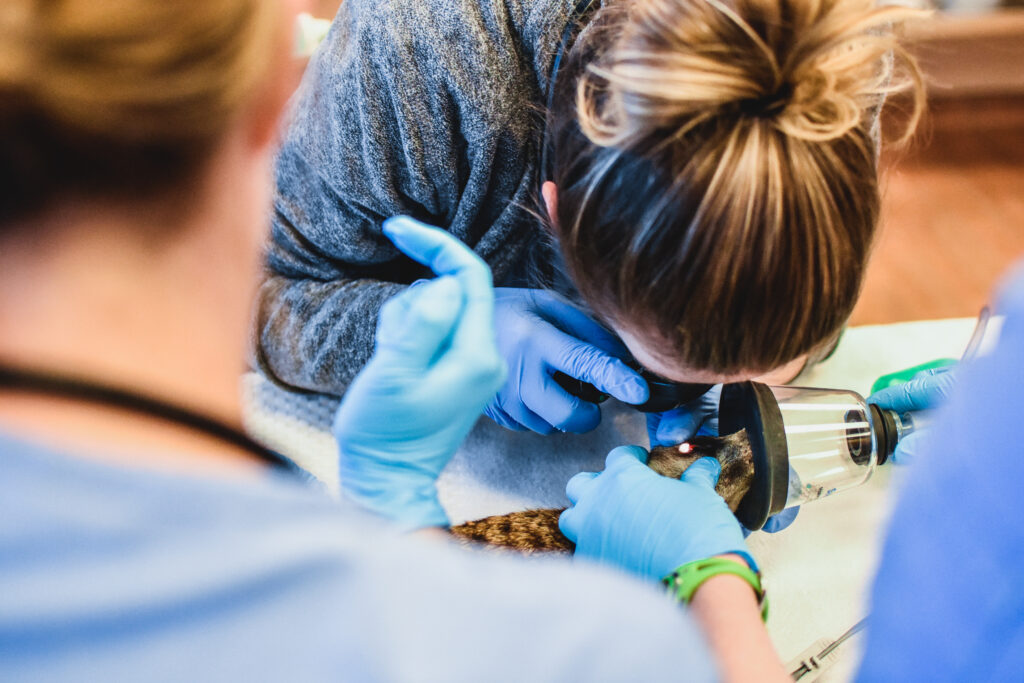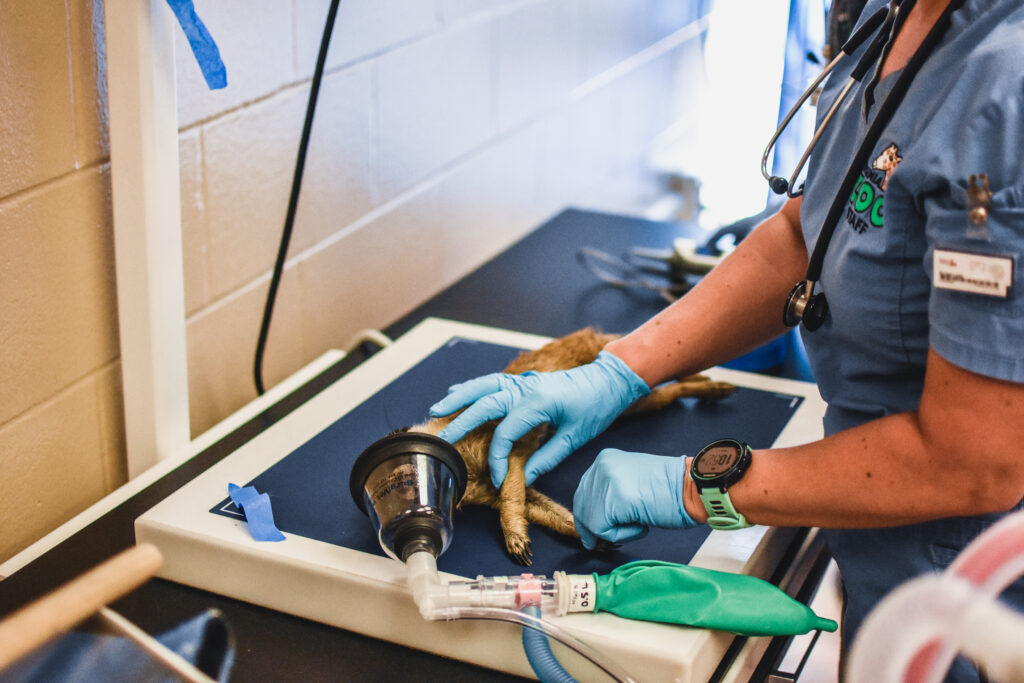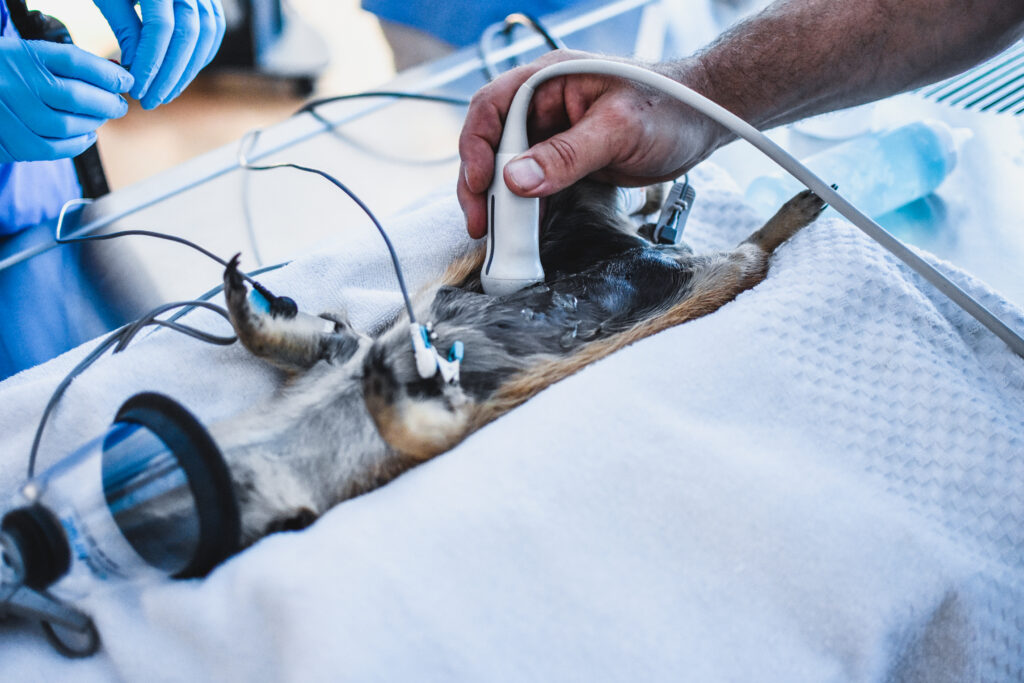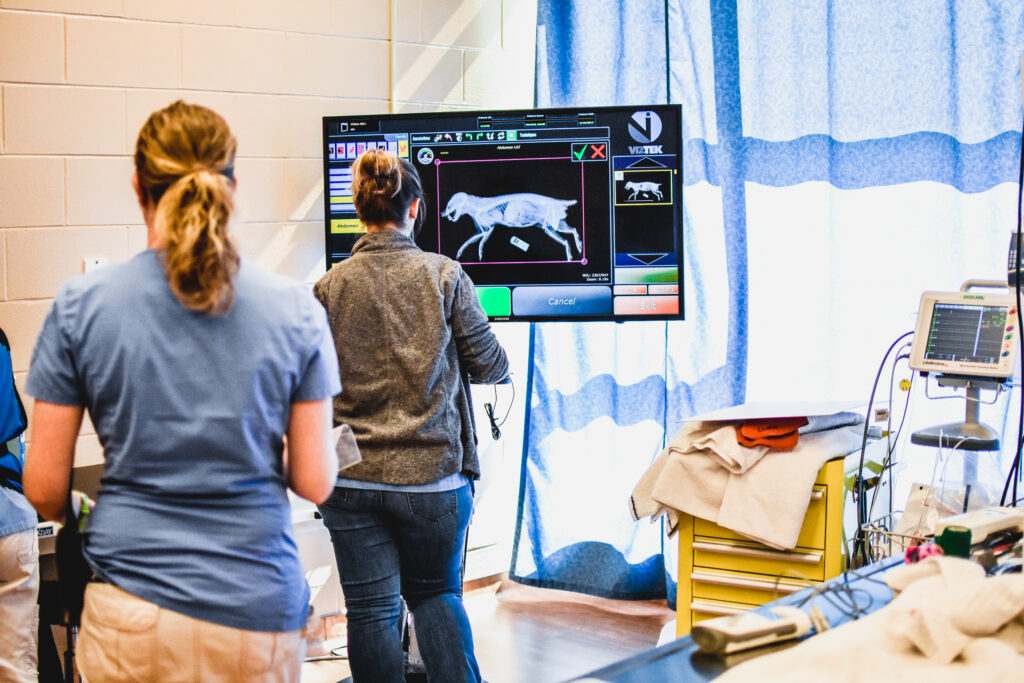Mobservations
 Names: Amadi, Tim and Hardy
Names: Amadi, Tim and Hardy
Sex: Males
Species: Meerkat (Suricata suricatta)
Ages: Amadi – 1/15/12; Tim – 11/16/12; Hardy – 8/26/12
Weight: Amadi – 2.86 lbs; Tim – 2.95 lbs; Hardy – 3.02 lbs
Reason for Visit: Routine physical exam, abdominal ultrasound
For routine exams, Dr. Colleen, the Zoo’s Veterinarian usually only examines one animal at a time, but the Zoo’s meerkats are a little different. Meerkats have a social heirarchy, meaning they establish dominance over one another. If a member of the group is away from the rest for any extended period or returns to the group smelling differently, the group may feel the need to re-establish the hierarchy when reintroduced. To help maintain order in the group, also known as a mob or gang, the meerkats all go through general exams around the same time so there isn’t a need to re-establish the hierarchy or re-introduce members to the group.

During Dr. Colleen’s exams of the meerkat brothers, Amadi, Tim and Hardy, she examined each meerkat’s teeth, listened to their heart and lung function, palpated (or touched) their abdomen to feel for any abnormalities, and captured radiographs of their skull, chest and abdomen.

Routine bloodwork was also obtained and submitted for testing to assess organ function and an abdominal ultrasound was performed to examine the organs in the abdomen, with a special focus on the liver. Hepatocellular carcinoma, or liver cancer, has been commonly found in this species, so an ultrasound was performed on each meerkat to screen for this cancer so Animal Care Staff can catch the disease early to provide the best care for the animals.

The mob of meerkats also received routine vaccinations for rabies and distemper, a contagious and serious disease caused by a virus that attacks the respiratory, gastrointestinal and nervous systems.

Results of all tests and exams came back normal, including bloodwork, radiographs and ultrasounds, and Dr. Colleen gave the trio each a clean bill of health. Amadi, Tim and Hardy are all now back on exhibit in Africa – Okavango Delta, where they can be seen digging holes, napping in the sun or checking out visitors while perched on the highest rocks.